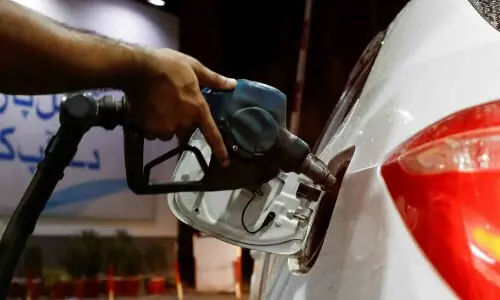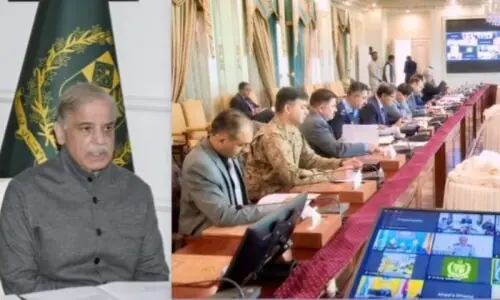WITH the country’s foreign exchange reserves depleting to dangerous levels, all eyes are on the government to see how its negotiations with the IMF pan out. Friday’s pages carried a concerning report on the State Bank’s forex holdings, which stood at just $6.1bn after the week that ended Dec 16.
The central bank cited continuing repayments of external debt as the reason behind the sustained decline in its forex reserves. Those repayments are likely to get more and more difficult without new inflows, which is why satisfying the IMF and securing another tranche from the ongoing bailout programme has become so critical for maintaining the economy’s health.
It is worth recalling that the ninth review of the IMF’s bailout programme had earlier been put off for two months due to the PML-N-led government’s unwillingness to accept certain conditions placed before it by the Fund, and the disagreements have yet to be resolved.
Apparently, instead of acknowledging the ground realities and taking action accordingly, the people tasked with managing the country’s finances expended that time pleading with friendly countries to roll over maturing loans, make fresh deposits and provide some concessions, such as deferred oil payments.
However, while those friends have made assurances, the needed assistance has yet to materialise, and the window for the government to take action has narrowed considerably in that period.
Reports in some sections of the local media suggest that the IMF has given Islamabad another few weeks to get its act together and make progress on the prescribed action points if it wants to clear the ninth and tenth reviews satisfactorily. Otherwise, there is little hope for the release of the held-up funds.
The imposition of about Rs800bn in new taxes, which the IMF insists Pakistan needs to do in order to keep afloat, is a key hurdle. However, Finance Minister Ishaq Dar has been resisting the requirement strongly due to the political costs it is likely to extract from the ruling coalition.
Foreign lenders are unlikely to look on Islamabad very favourably as long as the IMF remains dissatisfied with the overall direction the economy is being steered in. Given the amount of energy the ruling coalition is expending on ensuring that it stays in power till August at least, the stasis in policymaking defies logic.
Whatever the political costs of taking difficult measures, the hammering the PDM is likely to receive if the economy continues to be run aground is going to be far worse. With time rapidly running out, Mr Dar must decide whether his party’s political standing is dearer to him or the country’s economic future.
He ought to have understood by now that the PDM’s decision to keep its government was going to come with political costs, especially during a time when the country is wracked by multiple crises.
Published in Dawn, December 26th, 2022






























